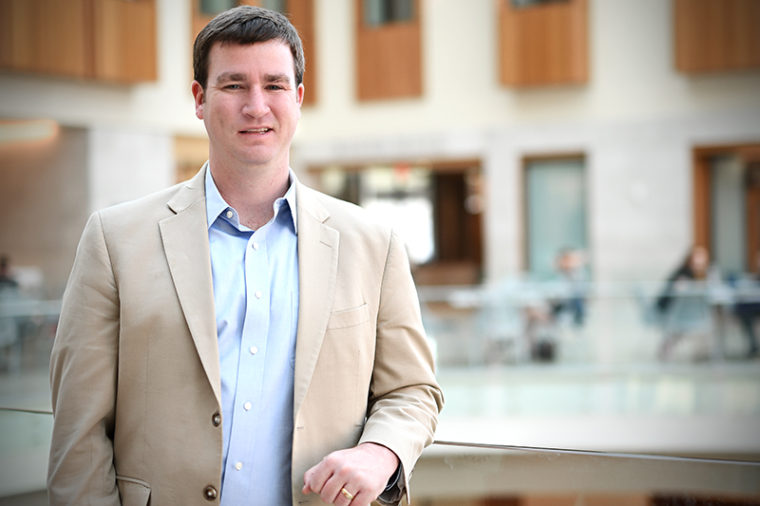Jon Slack applied to Olin Business School at Washington University in St. Louis because of its stellar faculty and track record of placing graduates in top jobs. But he also chose Olin because of another veteran.
“I talked to the president of the Olin Veterans Association multiple times prior to making my decision,” Slack said. “I didn’t have that sort of communication at the other schools. This was important to me because I feel there is a bond of trust veterans share.”
The financial support also mattered — not just the money, but what it symbolized.
“At the other schools where I was accepted, they said, ‘You’ll be on the G.I. Bill. That’s great. But there will be a gap between what the G.I. Bill covers and actual tuition. When I visited here, they said, ‘Know that you will be taken care of. And we do that for every veteran,” said Slack, who will graduate among 10 veterans. “That told me something about the school. It was an above-and-beyond thing.”
Slack was studying economics and computer science at the University of Central Florida when the World Trade Center was attacked on Sept. 11, 2001. On Sept. 12, 2001, he wanted to enlist. His parents urged him to finish his degree first. Slack agreed and joined ROTC. After graduation, Slack served in Afghanistan, Korea, Germany and Africa, where he learned a lot about the world and his fellow Americans.
“I’m from Miami, so diversity was not new to me,” Slack said. “But serving in the military opened me up to other types of diversity. The people alone provided me a great education.”
Initially commissioned as an engineer officer, Slack went on to serve as a civil affairs officer, helping local people develop the capacity to rebuild their institutions. While deployed, the goal, he said, was to work himself out of job. While there was still much to be done, after 10 years he decided it was time for a change.
Slack initially thought of law school; his wife is an attorney and both of his parents are retired police officers. But he soon discovered business school would be a better fit.
“I realized things I enjoyed doing in the Army — leading soldiers, building teams, solving problems — were the focus of business school,” Slack said. “I’m a state-school kid, the son of cops. I never thought I’d go to business school, much less at an elite university. And, to be honest, after 10 years out of school, the first semester hit me like a ton of bricks. But now I love it.”
